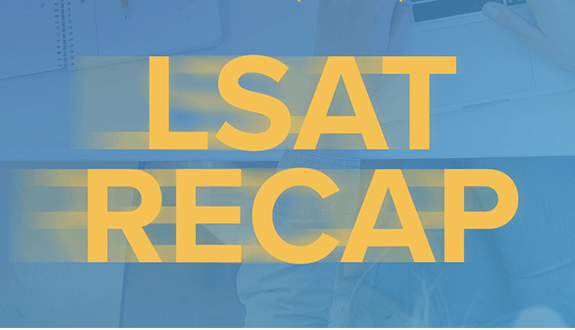We know it’s an exciting time. November LSAT scores are coming out, law school applications are getting submitted left and right, and obscure gift lists that no one asked for are starting to pop-up (sidenote: here are some gift ideas for pre-law students). With the January LSAT registration deadline coming up soon, we thought it would be worth taking a look at whether you should take this LSAT as opposed to any other time.
Whether you took the LSAT in the fall and considering retaking in January or have never taken the LSAT before, you’ve come to the right place.
Before we start, we need to preface this by saying the best LSAT to take is the one that gives you enough time to prepare and aligns with your law school application timeline. Whether that’s the January or June LSAT is entirely up to you. However, here are three reasons why the January LSAT could be your best choice.
1. You can still apply to law school with January LSAT scores.
Some law schools consider the January LSAT as the final LSAT you can take and still submit an application for admission in the fall because their application deadlines are either at the end of January or early February. Always double-check the schools on your list because it might not be the case for you and you could still take the February LSAT.
Regardless, use the holidays and winter break to your advantage to prep for the LSAT, write your personal statement, round-up your letters of recommendation, perfect your resume, and register for the CAS. If you can, submit your applications ASAP; it won’t be complete until you enter all your materials, including your LSAT score, but LSAC can get a head start on verifying your materials.
When it comes to law school admissions—as it does with most deadline-driven things in life—the early bird tends to get the worm. We advise students to apply early, though this doesn’t necessarily mean Early Decision. However, you always want to give yourself the best chance you can, especially in a year when more people are applying to law school. This means that if you took a fall LSAT and didn’t do as well as you hoped, you can retake the LSAT in January, especially if you’re potentially applying to law school with a low GPA.
2. You might have more time to prep for the LSAT.
November and December might be rife with distractions, what with the holidays, final exams, and impending travel plans. However, many students are on winter break beginning in December. This hopefully gives you a solid month to prep for the January LSAT. While you shouldn’t study for solely one month, you can use this time to ramp up your prep and maybe sneak in some more practice LSAT questions or practice tests.
If you need more material, sign up for the monthly Blueprint Self-Paced Course subscription—there’s no cancellation fee! If you prefer an instructor-guided class, check out our Live Course schedules.
3. LSAT prep is the perfect distraction from everything else.
Yes, we just bemoaned about how distracting the holiday season can be, but LSAT prep can be just as distracting—and that’s a good thing. Hear us out. What better excuse will you have to not take part in tired traditions your mom still insists you do? You’re simply too busy! Tempting cyber sales flooding your inbox? Close all your tabs and complete/review a practice LSAT or a new set of practice questions. Are you over all the Hallmark-funded capitalism propaganda and frightful weather? Grab a glass of eggnog—or your drink of choice—and lock yourself in your room to read through some passages. Before you know it, you’ll be ringing in the new year one step closer to having the best year of your life (or, at least, just closer to not having to worry about the LSAT).
There is no “ideal” time to take the LSAT. It’s all relative. You should always plan to take the LSAT after you’ve been able to dedicate a decent amount of time to prep for it. That said, the January LSAT might be the perfect administration for many students. If that’s you, we raise a glass of ‘nog to you!




